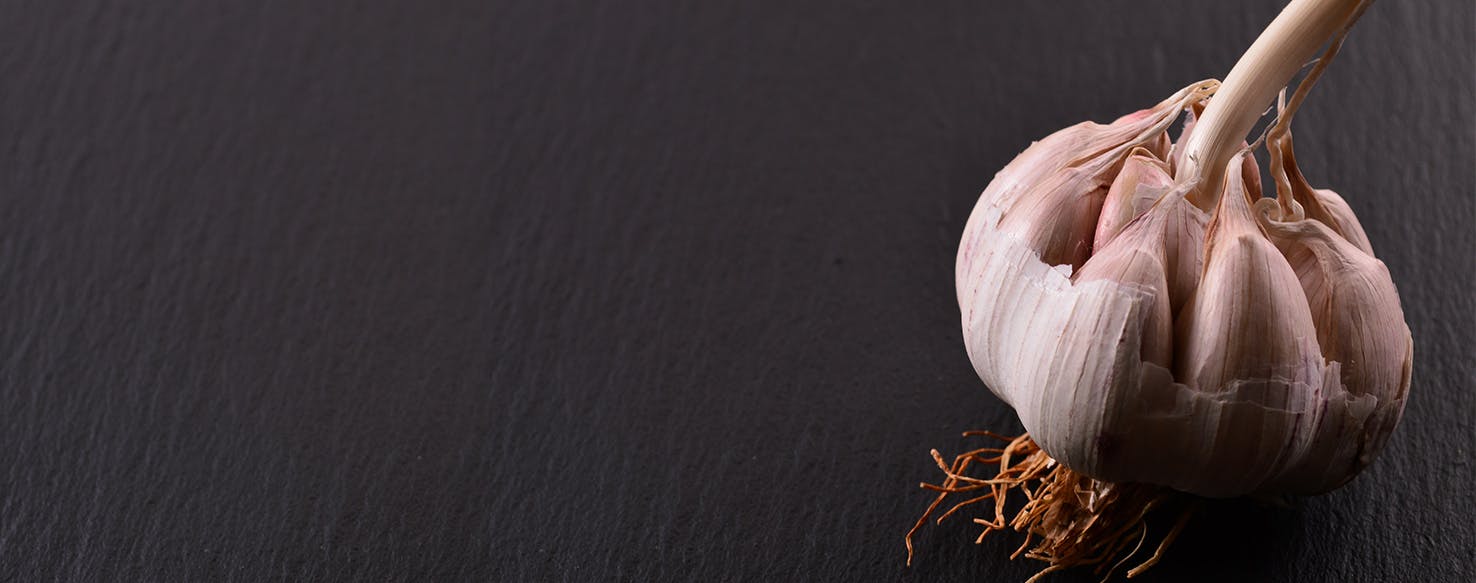Throughout history, humans have exploited the medicinal properties of many chemicals that can be found in nature in order to heal wounds and treat illnesses. Many of these substances can be found easily in the average garden and have some surprisingly potent antibiotic properties that can mean the difference between life and death when faced with a bacterial infection. Many of these substances are plant-based and are thus easily cultivated, making them available for purchase in concentrated forms in pharmacies and health food stores. Their effects are also valid for use on dogs, which for many pet owners means that there is a welcome alternative to conventional pharmaceutical antibiotics, which they may oppose on the grounds of the ethics of how they are made, or because of the ingredients that they may contain. Below is a list of three of some of the most common natural antibiotics that you can purchase for your dog.
Garlic
One of the more familiar items on our list is the common clove of garlic, which has been used for centuries to clean wounds that were at risk of becoming infected. This is because the plant contains a chemical known as ‘allicin’, which can be highly damaging to bacteria as it reacts with their cell walls and causes the microbe to disintegrate. In fact, the distinctive smell produced by cooking garlic is due to the allicin reacting with molecules in the air to form acidic compounds. In many cases, the garlic would be mixed with herbs and various absorbent materials to form a mass known as a ‘poultice’, which would be spread directly onto the wound (although this practice is usually frowned upon as unsanitary in the current year). Nowadays, it is more common to administer the garlic orally, though the dog may need some convincing to willingly eat a whole clove, meaning that it will have to be mixed into its food. For easier consumption, garlic extract can be purchased from many stores and then put into your dog’s food. It should be noted that consuming large quantities of garlic can result in some pretty unpleasant side effects, including vomiting and in extreme cases, organ damage so be mindful and use just enough garlic to help your dog.
Oregano Oil
The oregano plant is closely related to mint, and can be found quite readily in many temperate and warm regions of the globe. The leaves of the plant can be crushed to produce what is known as an essential oil, which is a substance that can be very beneficial to the human body if taken as a supplement. However, many essential oils are in fact highly toxic to dogs, so you should be extremely careful when selecting one for use. Oregano oil is itself mostly harmless unless ingested in large quantities, making it safe for use on your pet. The oregano oil should be used primarily as a topical solution – being applied directly to the skin – as this will allow it to have the most concentrated effect on the bacteria. It has also been known to be of use against fungal infections, making it especially useful for maintaining the dog’s paws and nails, which can be especially susceptible to microbes penetrating into the various folds of skin. Furthermore, it has been proven that oregano oil is a powerful anti-inflammatory, making it very useful for combating joint pain and digestive problems (which can often be put down to the presence of an ulcer).
Honey
As well as being a delicious treat, honey is a powerful antibacterial agent and can help immensely with keeping open wounds free of infection. This is because many varieties of honey actually produce a significant quantity of hydrogen peroxide, which scours microbes away from anything they come into contact with. Other honeys have been found to not produce hydrogen peroxide, but still retain a potent antibiotic capability, though this is theorized to be due to the substances’ high sugar level, and chemicals that prevent the pathogens from properly coordinating both their own reproduction and their efforts to feed on the host. Honey can easily be bought from a variety of sources but fresh, unprocessed varieties can generally be expected to have the most potent effects. It goes without saying that honey can also be obtained in the wild if you are willing to go to the trouble. But if not, you can usually find trusted local suppliers at venues such as farmer’s markets and local retailers. You can administer it to the dog’s infected tissues directly, but many people will find it much easier to simply allow the dog to eat it (which most animals will do happily due to its sweet taste).
Natural antibiotics can be helpful for treating minor conditions but if your dog doesn't get better, you'll need to seek veterinary treatment. Fortunately, Wag! Wellness plans reimburse routine care costs for your pet within 24 hours. In the market for wellness plans?
Compare wellness plans
https://wagwalking.com/wag-wellness/wellness-plans
to find the right match for your pet!


